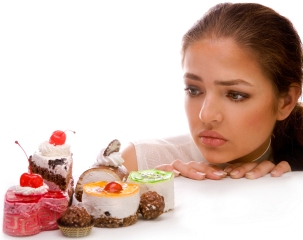For some kids, school is a source of high anxiety as it relates to making good grades, balancing homework with after-school activities, and sadly, bullying or family troubles. Just like adults, children have to cope with these everyday stressors and often turn to overeating and consuming not-so-healthy foods as a way of dealing with these issues. This emotional eating behavior can have serious health concerns if children do not have a different means of coping with their stress.
A study published in Appetite in September of 20071 discussed the correlation between emotional eating in adolescents and the rising intake of energy-dense, or higher calorie, foods. According to the study, children were more likely to eat foods with higher fat and calories, primarily from sugar, than children who cope with their stress in other ways.
The children in the study consumed less fruits and vegetables when they were stressed out which is associated with a higher risk of being overweight as teens. Additionally, these children are more likely to consume sugary beverages such as soda when they are feeling the burn.
With the new school year, here are 4 ways to help curb emotional eating with your children and adolescents.
Keep healthier snacks on hand.
If unhealthy snacks aren’t available in your house, your children won’t be able to eat them. Try to keep carrots, celery, peanut butter, low-fat cheese sticks, hummus, salsa and plenty of easy-to-peel fruits on hand. Whole-wheat crackers will also help fill them up since they are a great source of fiber.
Choose water instead of sugary soda and beverages.
Water is so important for many reasons. It helps keep us hydrated so our bodies can function properly and it can also help keep us full. Cutting soda and sugary drinks cold-turkey is hard so start slow but cutting out just one or two each day and don’t continue to stock it at home. If it’s flavor you need in your water, infusing water with fruits like strawberries, oranges and watermelon are delicious and a low-calorie way to stay hydrated. Another yummy option is cucumber infused water. Trust me, it’s refreshing taste reminds me of a spa and that means instant decompression any day!
Exercise.
When you see your kids stressed-out, try to get outside and play for 30 minutes. Chances are you need to decompress too and a little sweat and laughter will help lift your spirits AND it helps everyone get in the recommended 30-60 minutes of physical activity each day. Plus, if your kids are outside exercising, they aren’t eating.
Talk to someone.
If your child is having a hard time coping with their emotional eating due to stress and anxiety at school, they may need to talk to someone. School counselors or a licensed mental health professional may be able to help your child work on strategies other than emotional eating of unhealthy foods to better cope with their daily stressors.
Emotional eating isn’t just an issue with adults. Children and adolescents are faced with their own stressors that deserve just as much attention, if not more, so that these emotional eating behaviors do not continue into adulthood can lead to other health concerns.
If you are noticing you child or teen still struggling in this area even with your assistance then maybe it is time to reach out for some professional guidance. Life Counseling Solutions is here to help! Call today at 407-622-1770 to set up an appointment to work with one of our expert therapists so your child/teen can have healthy strategies in dealing with stress.
References
- Nguyen, Selena T., Jennifer B. Unger, and Donna Spruijt-Metz. “Dietary Correlates of Emotional Eating in Adolescence.” Appetite. September .49(2) (2007): 494-499. Web. 20 Jul. 2013.

Leave A Comment